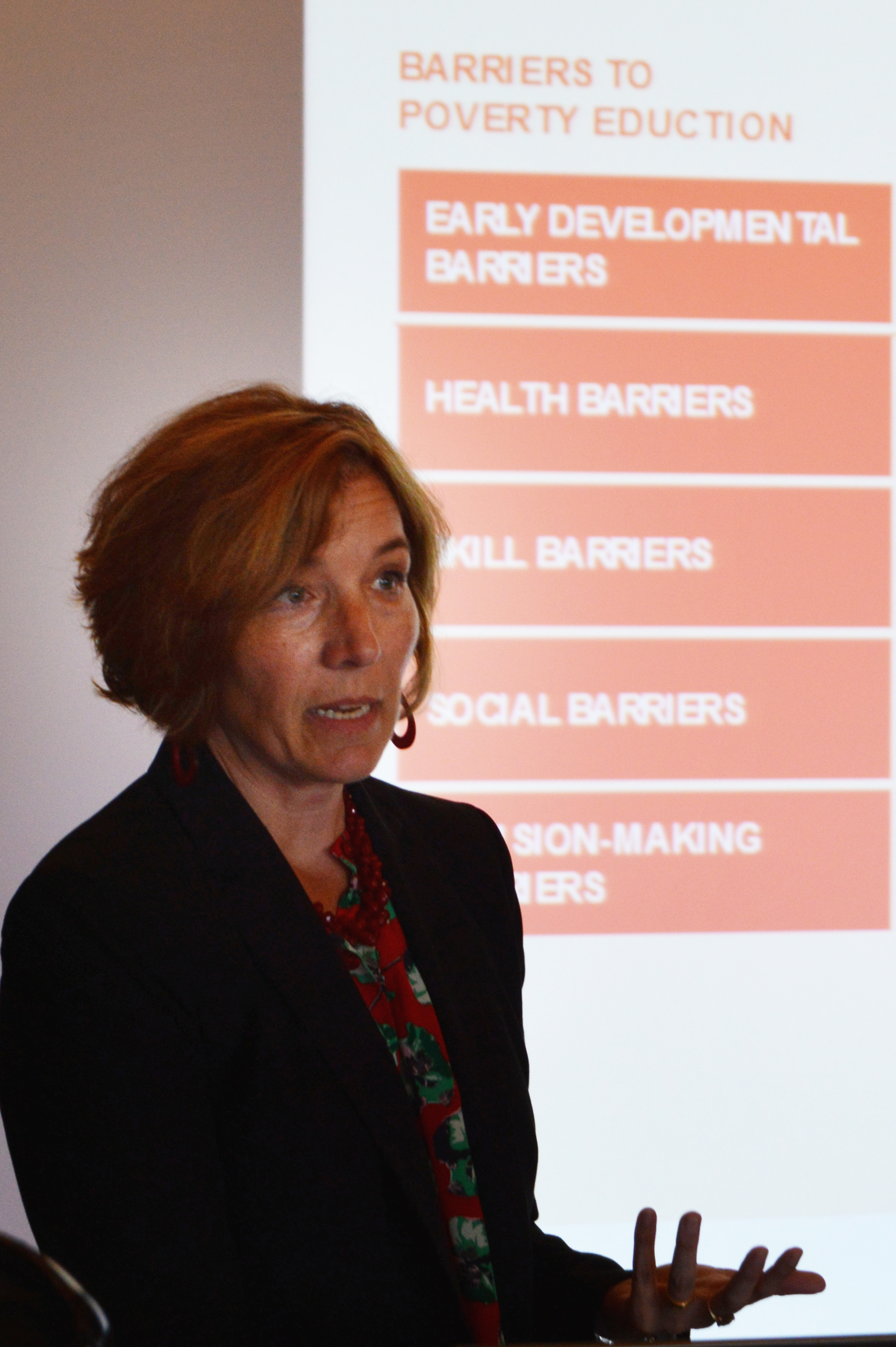Poverty is a complex problem that requires multi-dimensional solutions. This idea is the underlying thesis of “Barriers and Opportunities at the Base of the Pyramid,” a United Nations Development Program (UNDP) analysis of strategies the private sector can adopt to help alleviate global poverty. The report outlines causes and consequences of poverty, offering suggestions that businesses can adopt.
Some of the most overlooked factors hindering economic advancement are social, rooted in everyday attitudes, beliefs, and behavior. Heather Bullock, psychology professor at UCSC, carefully explores the significance of class, race, and gender bias in Chapter 5 of the report. Bullock, a contributor to the report, reviews research findings that document biases that materialize in the workplace:
- Women’s pay still lags behind their male counterparts.
- Long-term unemployed are stigmatized as un-hirable and remain unemployed.
- Pregnant workers are mistreated to spur resignation
- Racism is pervasive with black men half as likely as their white peers to receive a return phone call for service industry jobs.
When considered as a collective, the evidence pointing towards systemic bias impacting workers becomes staggering. Marginalization deepens hardship and reduces life chances, perpetuating a vicious cycle of economic and social exclusion. Bullock argues that this can no longer be ignored: “poverty cannot be reduced without recognizing the role of widespread beliefs about social class and poverty, stereotyping, and discrimination – an area that requires greater mobilization, and more careful deployment of resources.”
The report advocates for increased inclusion and integration to breakdown economic and social boundaries. Bullock draws attention to the need for greater recognition of structural sources of poverty and the adoption of inclusive practices.. “The private sector must identify practices that can have unintended exclusionary effects.”
She also points to the need to restructure work environments to encourage positive interactions across diverse groups.”
Ultimately, Bullock calls for increased private sector accountability and engagement in poverty alleviation efforts. “Tackling social barriers is a long term investment, and is central to developing new models of corporate social responsibility.”

